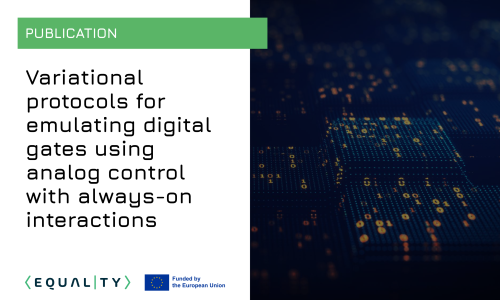

Quantum computers present an exciting alternative approach to their classical analogues that has the potential to give exponential speed ups to some very specific problems such as the simulation of quantum systems.
The most common approach to quantum computing is digital, in which a set of one-qubit and two-qubits gates are used to build a theoretically universal quantum computer. However, a fully fault-tolerant quantum computer is currently out of reach. Quantum error correction protocols have been proposed but, before they can be implemented at a meaningful scale, the number of qubits and the noise level must be improved by many orders of magnitude.
On the other hand, analog quantum computers have lower error rates than current digital computers and therefore are likely to show the first industry-relevant quantum advantage. However, since they are closely related to quantum experimental setups, analog devices are not universal, and thus more limited in their potential use cases.
In this work, EQUALITY partners from Pasqal design variational pulse sequences tailored for neutral atom quantum simulators and show that it is possible to engineer layers of single-qubit and multi-qubit gates. As an application, the authors discuss how the proposed method can be used to perform refocusing algorithms, SWAP networks, and ultimately quantum chemistry simulations.
While this theoretical protocol still has experimental limitations, it paves the way, with some further optimisation, for the use of analog quantum processors for variational quantum algorithms, including those not previously considered compatible with analog mode.
Read the paper: https://doi.org/10.1103/PhysRevA.109.062604
